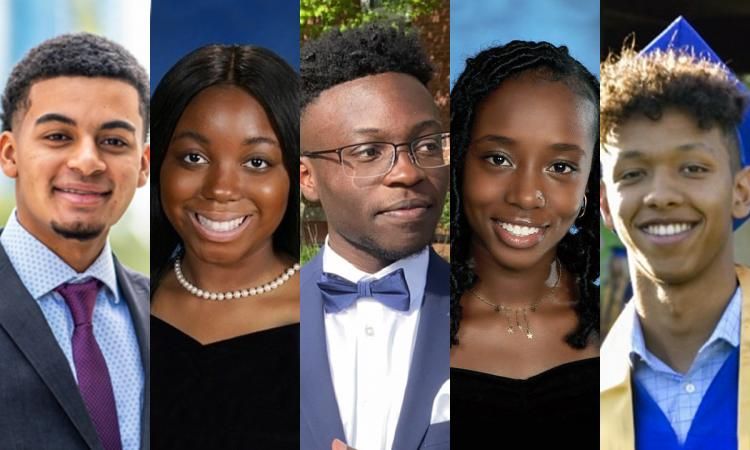First defined as an industry in 1958, Aerospace Engineering is a relatively young field with rising influence over the future of space exploration and aeronautical travel. In short, as resources are slowly diminishing on Earth, scientists are looking to the skies for the future of science and technology.
However, such an influential field is vastly underrepresented by individuals of color, particularly Black employees. According to the career site Zippia, 3.6% of the 5,292 aerospace engineer profiles represent Black users.
The founders of the Patti Grace Smith Fellowship, B. Alvin Drew, Jr., Khristian Jones, Tiffany Russell Lockett and Will Pomerantz, sought to end this disparity. Named after aerospace trailblazer Patti Grace Smith, the fellowship seeks to connect Black students with companies that will provide them with their first work opportunity in the aerospace industry.
Of the 39 recipients of the fellowship, five are current undergraduate students at the Institute. Jalen Cauley, Justin Connors and Suraya John are first-year AE students. Justin Pemberton is a first-year ME major and Kay Perkins is a second-year HTS and PUBP double major.
All five are still within their first two years at Tech and for this reason may have been otherwise overlooked by major aerospace companies.
“I was actually applying to a couple of different internships, but with no prior experience, I wasn’t hopeful,” Connors told the Technique. “Upon hearing that this fellowship was tailored to students with little to no aerospace experience, I realized that this would be the perfect opportunity to get out into the industry.”
Connors believes that his internship this summer with Airbus will open a number of doors in the aerospace industry. He is seeking to improve his 3D design and coding skills through hands-on experience, rather than just learning it in a classroom.
Throughout the application process, Connors was able to draw from his peers as an asset for the application process.
“I originally found out about the fellowship through an email from one of the Aerospace Mentors, an upperclassman by the name of Jesudunsin Awodele [3rd-year AE],” he said. “He gave some background information about the fellowship and explained the application process. My main source of help was other Black aerospace students, a few of whom were part of the inaugural class of the Pattie Grace Smith Fellowship the year before.”
This is not the only way in which the Institute’s resources aided the recipients. Cauley found his AE coursework to be valuable in preparing for his career.
“In the time that I’ve been at Tech, I’ve learned that everything builds to something greater,” he said.
“It’s rare to have an aimless assignment that is made to just keep you busy. Applications of your knowledge will be tested in the future, which is the same case outside of education. I’m continuously thinking about the next or how something can be improved.”
In addition to this crucial content, John used networking resources offered by Black student organizations to further support her own career objectives.
“I found out about [the Patti Grace Smith Fellowship] after going to a Black GT student networking social with GT Lambda Delta Rho and The Black Connect @ Tech,” said John. “My current, major, long-term career goal is to establish and fund programs that expose students to Aerospace at an early age. I want it to become easier for others who are underrepresented to take their first step into this industry.”
John is interning with SpaceX this summer. Cauley is working at L3Harris Technologies, where he hopes to “gain a heightened mindset of what it means to be an engineer.”
He is particularly interested in using technologies intended for aerospace usage to improve the livelihoods of the population on Earth.
“With our advancing technologies, techniques and discoveries, there would be another branch of ideas to use with innovation,” Cauley said. “For example, water filtration, solar cells and scratch-resistant lenses were all either created for the use of space exploration or originated from innovations that aided in
space exploration.”
With this opportunity, Cauley not only has access to his own resources, but to the resources of an entire company. These are tools he deems necessary to not only advance his own career, but to inspire future innovators to enter the field.
“One of the changes I would like to remind myself of is that in order to give out knowledge, you need to contain knowledge,” Cauley said. “The more that I learn, whether it be various topics or an expert in a single field, I want to enrich others in their learning. I always want to increase what I know so I can help others and motivate the next generation of STEM lovers.”
Cultivating a future of engineers in underrepresented communities is vital to an inclusive future.
“Inclusivity is a significant topic of discussion no matter the field,” Pemberton said.
“For Aerospace Engineering, I believe it is especially important as the population of Aerospace Engineers fails to be demographically diverse.
As technology in the industry grows at a substantial rate, more engineers will be needed to work on the next generation of aircraft. Only an inclusive and collaborative group will be able to accomplish this task.”
Pemberton will drive this idea into action during his internship at Lynk Global this summer.
With the tools acquired throughout their summer internship experiences through the Patti Grace Smith Fellowship, Cauley, Connors, John, Pemberton and Perkins are preparing to shape the future of the aerospace industry and truly put actions behind the Institute slogan: “Creating the Next.”
